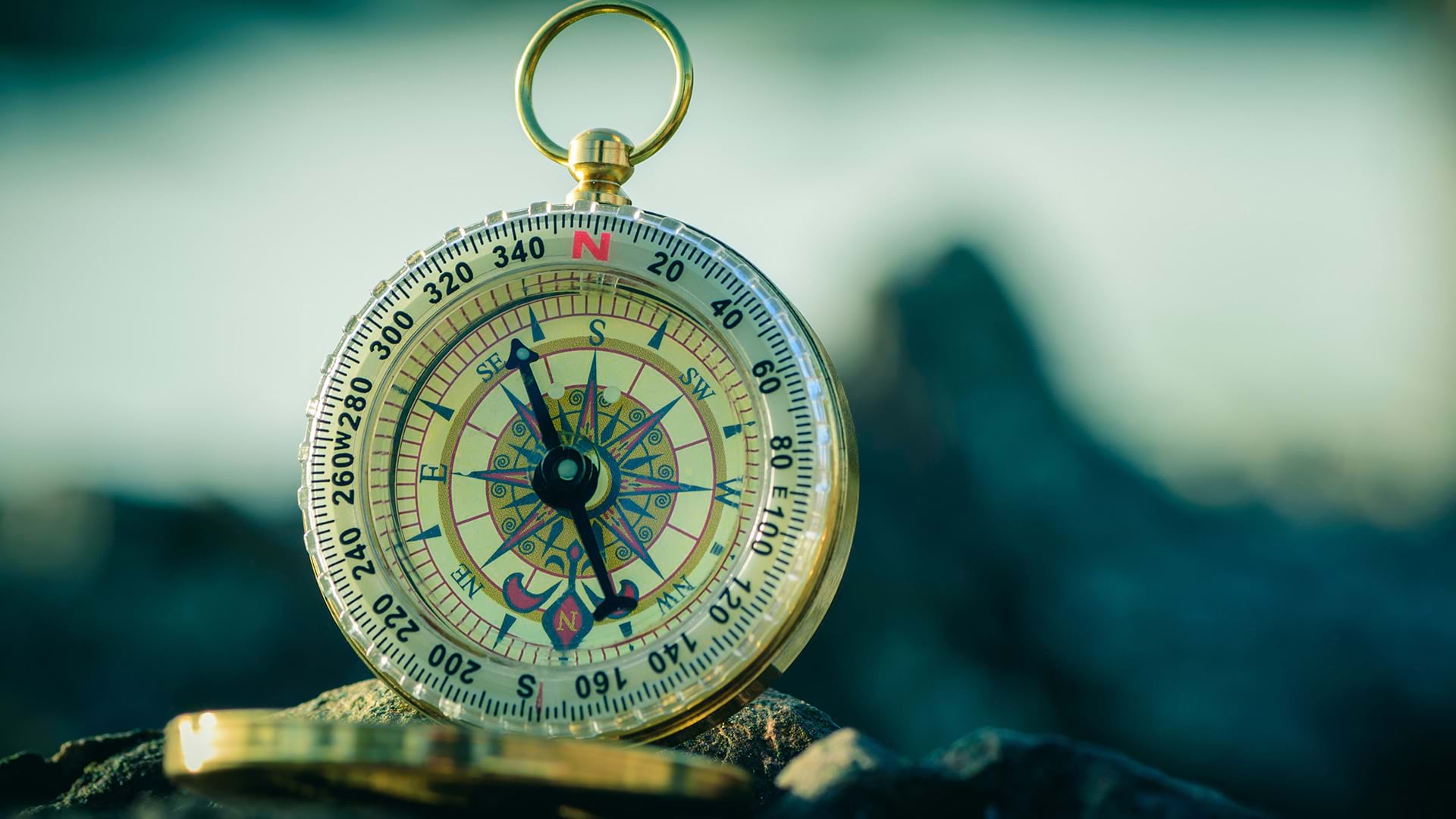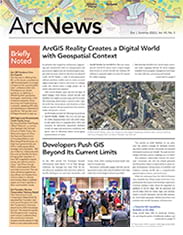In late 2022, the American Association of Geographers (AAG) welcomed Dr. Risha Berry as its first director of diversity, equity, and inclusion. Central to her new role is her work with AAG’s Justice, Equity, Diversity and Inclusion (JEDI) Committee—bringing to life its 32-point plan to transform the discipline of geography and AAG into more inclusive places of belonging and opportunity for people of many backgrounds and experiences. In this edition of From the Meridian, Berry reflects on AAG’s intentions and work and invites you to join the organization in advancing them.
In geography, knowledge of positioning in space is what helps us grasp the characteristics and relationships of places so we can determine our direction and priorities. There is a very similar need to connect to positionality when we work to develop a more just, equitable, diverse, and inclusive discipline. Individuals and institutions must reckon with their own life experiences, history, and expectations to see where they are so they can determine where to go next.
A Zulu greeting encodes this important awareness in our social and professional relationships: sawubona. It means “we see you.” One possible reply, sikhona, means “I am here to be seen,” underscoring the spatial connections in our identities and relationships. This seemingly simple and factual exchange of greetings speaks directly to the work of creating a more just geography discipline. First and foremost, the greeting is spoken in the plural first person, even when only one person is saying it—a nod to the rich and complex ancestries and histories we all bring to life in our being. Second, to truly see someone else, you must be grounded in the ability to see yourself. Thus, the act of seeing is also an act of revealing. The knowledge of our personal, professional, and institutional identities and histories is the foundation for informing our work together. That’s why a hallmark of AAG’s JEDI Committee is being relational and participatory.
Building on more than a decade of recommendations, work, and insight from previous committees and staff initiatives at AAG, we have created a plan for celebrating and representing all identities and intersectionalities of identity within geography and to greatly increase representation in the discipline. I am excited to share our call to action and ask for your input and ideas. In particular, I invite you to share your insights with one of our seven new working groups. Through this input, the JEDI Committee intends to shape AAG’s approaches to governance, management, advocacy directions, membership goals, and more. To continually inform our progress, AAG will report the outcomes through identified metrics.
What JEDI Means
AAG uses the following JEDI framework to define goals and operationalize progress:
- Justice is an umbrella concept that acknowledges the vitality of multiple truths instead of a single historical narrative and current conditions. It champions dismantling systems and structures that create inequality and supports replacing them with systems that promote fairness. Fostering a culture of justice creates opportunities for diverse groups of people to thrive together.
- Equity emphasizes fair and equal treatment, access, opportunity, and advancement for all people while, at the same time, identifying and eliminating barriers that have prevented some formerly excluded groups from fully participating. Improving equity involves increasing justice and fairness by critically examining the existing procedures and processes of institutions or systems.
- Diversity creates the conditions for more meaningful exchanges of information and more equitable opportunity. It is a multidimensional acknowledgement of all the ways in which people differ across race, gender, ethnicity, age, national origin, religion, disability, sexuality, socioeconomic status, education, marital status, language, and physical appearance. Many of these differences have been constructed or amplified to enable powerful groups to maintain wealth, influence, and standing. The goal is not to remove differences but rather to address systems of oppression and exploitation based on differentiation.
- Inclusion is the attitude and act of cultivating a positive environment in which all individual groups feel welcomed, respected, supported, and valued to fully participate. An inclusive and welcoming climate embraces differences and offers respect for all people via words and actions.
Breaking Down Barriers and Lifting Up Opportunities
The State of Geography for 2022, AAG’s most recent report analyzing geography education in the United States, found that geography degree conferrals at the undergraduate and graduate levels have grown among students from historically excluded populations. In fact, it is these students who have contributed to new growth in geography in recent years. This is good news for the discipline.
But that growth is nowhere near the levels needed for people who have historically been excluded from the field to have full, representative equity in the discipline of geography. So while the data in the report offers a signpost that the field of geography is becoming more diverse, it is also a reminder that those of us already in the field must redouble our diversity and inclusion efforts.
Tackling this challenge will mean more than simply recruiting or hiring more diverse students and faculty members or professional candidates. We must also invest in holistic approaches to belonging. The University of California, Berkeley’s Othering & Belonging Institute defines the notion of belonging as “more than a feeling of inclusion or welcome. Its full power is as a strategic framework for addressing ongoing structural and systemic othering, made visible, for example, in the wide disparities in outcomes found across a variety of sectors and identity groups.”
A Vision for Communities of Belonging and Care in Geography
AAG’s vision is to be a vibrant, welcoming, and just professional organization of geographers that puts justice, equity, diversity, and inclusion at the center of its work and commits to the recognition, dignity, belonging, and engagement of all people. At AAG, we take seriously the goal of creating a relational approach to dismantling oppression, discrimination, and marginalization that addresses multiple and intersectional barriers to inclusion and equity.
We intend to make collaboration a primary approach for integrating the JEDI principles into our work. Leaders at AAG will focus on building and strengthening relationships within and beyond the discipline of geography over time—with the hope that this enriches opportunities to demonstrate geography’s relevance in solving urgent, real-world problems in inclusive and just ways.
What this means is, we need you! Read AAG’s JEDI plan and send us your comments, thoughts, and reflections at helloworld@aag.org.


